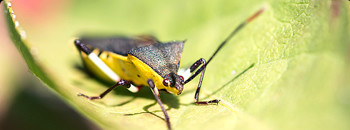RISE (Responsible Industry for a Sound Environment)® industry experts offer four important travel tips
WASHINGTON, D.C., March 14, 2016 – The spring travel season is here but a dark cloud is looming over many travelers’ excitement of soaking up some sun in a tropical locale. In early 2015, the World Health Organization declared the current Zika virus concern a global public health threat. Currently, the virus is active in 24 countries, including several spring break destinations, but the media coverage on the Zika virus may be creating more questions than answers for spring break travelers.
Transmitted through Aedes mosquito bites, the Zika virus causes symptoms that range from mild fever to a skin rash or conjunctivitis. Zika is a serious concern for pregnant women or women who may become pregnant as the virus is thought to be responsible for a birth defect called microcephaly (abnormal smallness of the head linked to incomplete brain development).
If you’re traveling to one of the regions where the Zika virus is currently active, RISE (Responsible Industry for a Sound Environment)® wants to offer four important tips that you and your family can implement to guard against mosquitoes.
- Put up personal barriers. Wear light-colored clothing and cover up with long sleeves and pants, especially during dawn and dusk hours when mosquitoes are most active.
- Reinforce your habitat. Aedes breed indoors, and therefore, your home or beach-front hotel is a welcoming place to them. Make sure cracks and crevices that could serve as entry points are sealed to keep the biting insects outside.
- Apply mosquito-specific defenses. Be sure to apply insect repellent, like DEET, on exposed skin, especially your legs. The Centers for Disease Control and Prevention (CDC) recommends a variety of safe and effective repellents for you and your family.
- Eliminate sources of standing water. Do a quick survey of your vacation surroundings and ask to have any unnecessary standing water drained, such as buckets, drums, bottles, birdbaths, pet bowls, flowerpot saucers, and plastic wading pools, which attract mosquitoes and allow them to breed.
In the contiguous United States, no cases have been reported of people acquiring the virus in the U.S.; however, more the 50 cases of people who acquired the disease while traveling have been reported to date. In addition, nine locally acquired cases have been reported in the U.S. territory of Puerto Rico and the U.S. Virgin Islands. Visit the Centers of Disease Control and Prevent ion website for the most current information about U.S. cases.
At a time when the idea of a relaxing vacation causes more angst than excitement, Aaron Hobbs, president of RISE, feels confident that the industry, health experts and government officials can work together to offer meaningful resources and information that will comfort nervous travelers.
Hobbs added, “The Zika outbreak is a scary situation, but we can take advantage of the in-depth knowledge our industry has about mosquitoes and their behavior, as well as effective repellent and control products.”
Access these additional resources for more information:
- Zika Virus: Centers for Disease Control and Prevention
- Zika: How to React, Clarke Pest Control
- Zika Virus: World Health Organization
About RISE
Located in Washington, D.C., RISE is the national association representing the manufacturers, formulators, distributors and other industry leaders involved with pesticide and fertilizer products used in turf, ornamental, pest control, aquatic and terrestrial vegetation and other non-food/fiber applications. Learn more about RISE at www.pestfacts.org and www.debugthemyths.com

